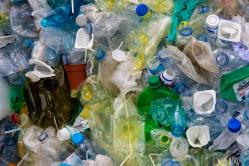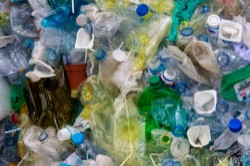How to Conserve Energy Whilst Working Remotely
 With the cost of living continuing to rise and the colder months on the way, many of us will be worrying about our energy bills over winter and into next year. Those of us who continue to work from home will have the added concern of knowing that we need to ensure we have an efficient and comfortable space to work from during the day, as well as a snug and relaxed place to enjoy in our free time, without sending already high bills even higher.
With the cost of living continuing to rise and the colder months on the way, many of us will be worrying about our energy bills over winter and into next year. Those of us who continue to work from home will have the added concern of knowing that we need to ensure we have an efficient and comfortable space to work from during the day, as well as a snug and relaxed place to enjoy in our free time, without sending already high bills even higher.
So, what can we do if we cannot, or do not want, to return to an office to work. ILSPA have compiled our top tips for how to save energy whilst working from home.
1. Location, Location, Location


 Last month, over 9 million people across the world came together to show their care for our planet’s future. By switching off their lights for an hour at 8.30 p.m., they demonstrated that small actions can make a big difference. During the darkened hour, people sat by candlelight and had the opportunity to reflect on how they could reduce their impact further.
Last month, over 9 million people across the world came together to show their care for our planet’s future. By switching off their lights for an hour at 8.30 p.m., they demonstrated that small actions can make a big difference. During the darkened hour, people sat by candlelight and had the opportunity to reflect on how they could reduce their impact further. The new year is a great time to reflect on how you can help yourself, others and the world around us. As time goes on, we are becoming more and more aware of the effect we are having on the planet and what we can do to reduce our impact. If you would like to make some meaningful New Year’s resolutions, here are some ideas:
The new year is a great time to reflect on how you can help yourself, others and the world around us. As time goes on, we are becoming more and more aware of the effect we are having on the planet and what we can do to reduce our impact. If you would like to make some meaningful New Year’s resolutions, here are some ideas: This year, the UK is hosting the 26th United Nations Climate Change Conference of the Parties (COP26). It is taking place from 31 October to 12 November in Glasgow. The conference will bring together world leaders, climate experts, activists and campaigners through talks on climate change. Agreements will be made between different parties as to how to tackle the escalating crises. Hopefully positive ones!
This year, the UK is hosting the 26th United Nations Climate Change Conference of the Parties (COP26). It is taking place from 31 October to 12 November in Glasgow. The conference will bring together world leaders, climate experts, activists and campaigners through talks on climate change. Agreements will be made between different parties as to how to tackle the escalating crises. Hopefully positive ones! Every week, we carefully take time to sort out our household waste and put it in the recycling bins. We believe we’re doing our bit for the environment and we don’t give it another thought after it is taken away. We trust that it is going to be recycled.
Every week, we carefully take time to sort out our household waste and put it in the recycling bins. We believe we’re doing our bit for the environment and we don’t give it another thought after it is taken away. We trust that it is going to be recycled. It sounds like a difficult task, doesn’t it? Questions might pop into your head like “How would I keep it clean?” or “What will people think of me?” However, Marina Testino put her reservations aside and did exactly that. Her intention was to dispel the belief that we need to continually wear new clothes to keep up with fashion, and she simply wore the same red suit for one month. Whilst finding it liberating not having to choose something different to wear each day, she made an important statement about consumerism. There is a lot to be said for keeping things simple. You can find Marina on Instagram @ #onedresstoimpress.
It sounds like a difficult task, doesn’t it? Questions might pop into your head like “How would I keep it clean?” or “What will people think of me?” However, Marina Testino put her reservations aside and did exactly that. Her intention was to dispel the belief that we need to continually wear new clothes to keep up with fashion, and she simply wore the same red suit for one month. Whilst finding it liberating not having to choose something different to wear each day, she made an important statement about consumerism. There is a lot to be said for keeping things simple. You can find Marina on Instagram @ #onedresstoimpress. We are all hopeful that the lockdown restrictions will be a thing of the past soon and we will be able to return to our normal way of living. This includes going on holiday and flying to our favourite destinations. However, many of us have heard about climate change and how the aviation industry plays a major part in contributing to damaging CO2 emissions. This puts us in a bit of a dilemma, as whilst we would love to jet off to sunnier climates, we also don’t want to harm the planet.
We are all hopeful that the lockdown restrictions will be a thing of the past soon and we will be able to return to our normal way of living. This includes going on holiday and flying to our favourite destinations. However, many of us have heard about climate change and how the aviation industry plays a major part in contributing to damaging CO2 emissions. This puts us in a bit of a dilemma, as whilst we would love to jet off to sunnier climates, we also don’t want to harm the planet. Christmas is a period of great indulgence, from the food that we consume to the products we buy as presents for our loved ones. During this special time of the year, we have an opportunity to reduce our impact on the planet by choosing eco-friendly options.
Christmas is a period of great indulgence, from the food that we consume to the products we buy as presents for our loved ones. During this special time of the year, we have an opportunity to reduce our impact on the planet by choosing eco-friendly options.  Every year, the Global Footprint Network (GFN) calculates Earth Overshoot Day. This is the day when our consumption exceeds the regeneration of nature on our planet. Last year this happened in July – however, due to the coronavirus, it was recorded on 22 August this year. As human activity has been limited, the earth has had a little bit of a chance to recover.
Every year, the Global Footprint Network (GFN) calculates Earth Overshoot Day. This is the day when our consumption exceeds the regeneration of nature on our planet. Last year this happened in July – however, due to the coronavirus, it was recorded on 22 August this year. As human activity has been limited, the earth has had a little bit of a chance to recover. It has recently been reported that the River Thames has a higher level of microplastics than any other river in Europe. Larger items such as wet wipes are even accumulating on the shore and creating wet wipe reefs! Scientists are baffled as to why the problem is particularly bad in London and they are calling for stricter regulations on the labelling and disposal of products that contain plastic.
It has recently been reported that the River Thames has a higher level of microplastics than any other river in Europe. Larger items such as wet wipes are even accumulating on the shore and creating wet wipe reefs! Scientists are baffled as to why the problem is particularly bad in London and they are calling for stricter regulations on the labelling and disposal of products that contain plastic.